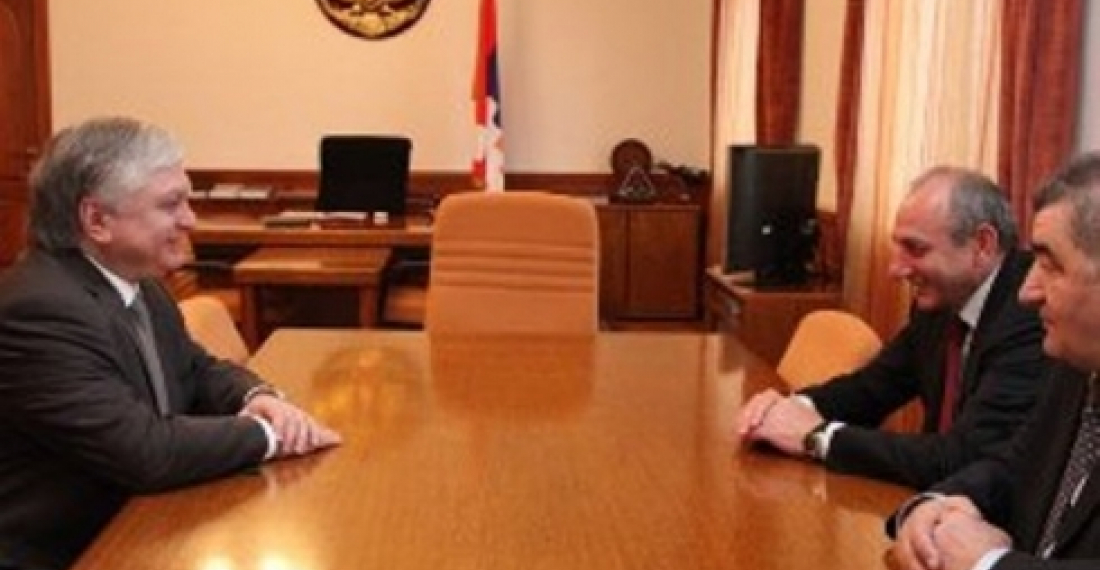The Armenian Foreign Minister Edward Nalbandian is a frequent visitor to foreign countries, as his job demands. This week he was however on an unusual trip - he visited Nagorno-Karabakh for consultations with the leadership of the self declared Nagorno-Karabakh Republic. Whilst Nalbandian is a key person in the Armenian team negotiating on the Nagorno-Karabakh conflict he is not the usual person who deals with relations between the Armenian leadership and the leadership of NKR. His visit was therefore followed with interest by analysts watching the region.
In Stepanakert Nalbandian met with the president of the self declared republic Bako Sahakyan to brief him about the results of the recent meeting in Paris between the OSCE Minsk Group co-chair and the Foreign Ministers of Armenia and Azerbaijan. Nalbandian later told the media, “We exchanged views on the ongoing negotiation process toward settlement of the Karabakh issue. The three Co-Chairs also are holding permanent consultations with Artsakh’s leadership."
The Armenian Foreign Minister also added "I would like to reiterate that the key issue cannot be resolved without Nagorno-Karabakh’s participation. The fundamental principles cannot be considered finally-agreed-upon without Nagorno-Karabakh’s approval. And, after the agreement upon the fundamental principles, the designing of a peace accord is impossible without NK’s participation.”
Commonspace.eu political editor said in a comment: "This was a carefully choreographed visit with a a precise message. It is likely to have had several objectives. The first, ahead of the presidential elections in NKR the leadership in Yerevan may have felt the need to be seen consulting with the NKR leadership since in the campaign, Bako Sahakyan is being accused of not being active enough in pushing for direct NKR participation in the peace negotiations. However, there is also a more worrying possibility that Armenia is re-positioning itself ahead of what is likely to be a next push by the international community to bring settlement to the conflict. By insisting that "the fundamental principles cannot be considered finally agreed upon without Nagorno-Karabakh's approval" the Armenian side may be trying to give itself a chance to revisit the fundamental principles even after they have been agreed by the official Armenian and Azerbaijani sides. This development, if true, would have caused considerable discomfort to the international mediators. But it is too early to say if this is simply election posturing for the benefit of the current NKR leadership, or something more strategic."
source: commonspace.eu with Armenian media
photo: Armenian Foreign Minister Edward Nalbandian with the president of the self declared Nagorno-Karabakh Republic Bako Sahakyan







